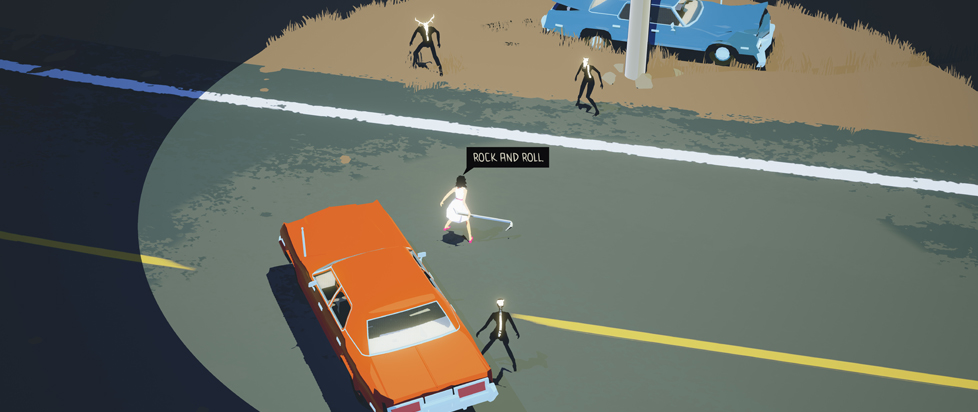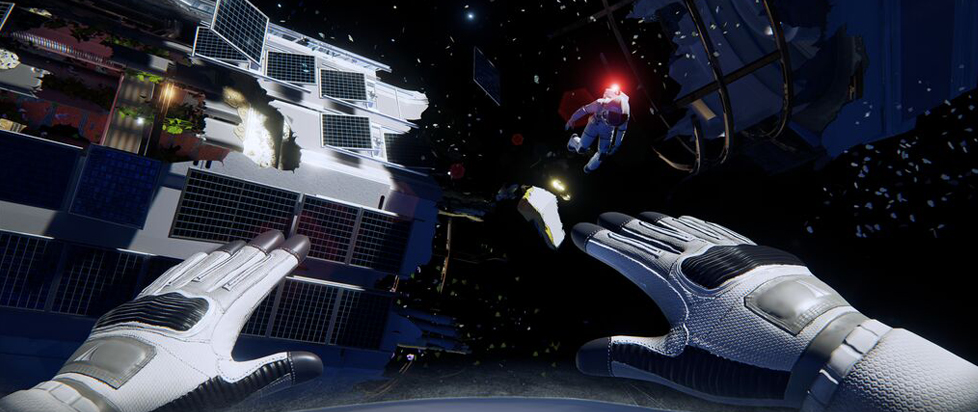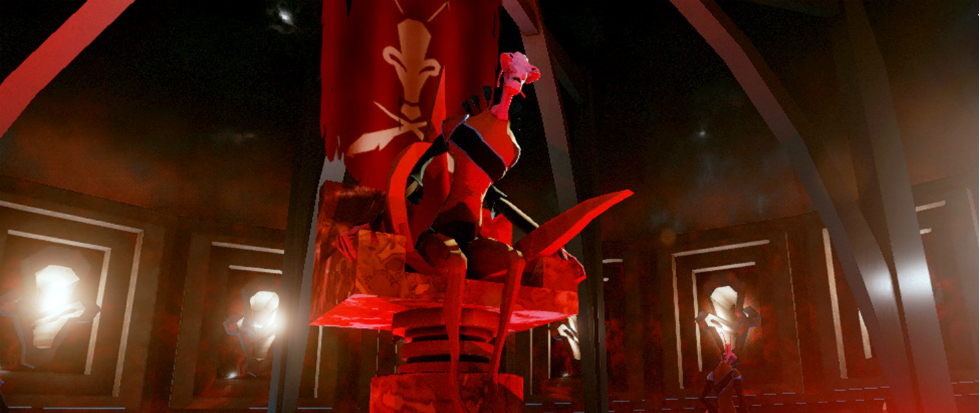
Revving the Engine: The Long Journey Home
This column is a reprint from Unwinnable Monthly #81, Body Horror. If you like what you see, grab the magazine for less than ten dollars, or subscribe and get all future magazines for half price.
———
This series of articles is made possible through the generous sponsorship of Epic’s Unreal Engine. While Epic puts us in touch with our subjects, they have no input or approval in the final story.
———
Several years back, I was flying from Ohio to New York. There were high winds from a nor’easter pounding JFK airport, preventing us from landing. The pilot gave it his all, attempting and landing several times. Once, he almost touched down, was maybe 20 feet from above the runway, before the wind started to shudder the plane in a way that seemed dangerous and he pulled up. All for nothing. Time passed. We ran low on fuel.
Despite the fact that storm was worse beyond Long Island, air traffic control directed us to put down at T. F. Green airport in Providence, Rhode 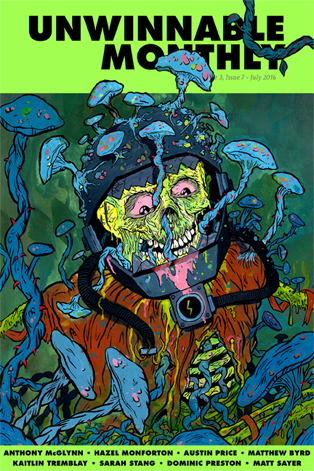 Island. Green must benefit from some quirk of airport design that makes it less dangerous during a storm, because we touched down there without a problem.
Island. Green must benefit from some quirk of airport design that makes it less dangerous during a storm, because we touched down there without a problem.
We disembarked into chaos. The airport was essentially closed, so there wasn’t adequate staff on hand to help the hundred or so passengers figure out what happens next. Was there another flight tonight? Was there a hotel voucher? Would the airline reimburse a rental? Train? Bus?
There were two general types of people: those that shouted to alleviate their frustration, and those who got real quiet, let that anger boil inside so you could practically feel the heat coming off them. The desire to get home, even if that home is as temporary as a hotel room, is powerful one and dangerous to thwart.
I didn’t want to see what happened when the scene boiled over, so I walked for what seemed an impossible distance to the car rental hub. There I rented a mid-sized sedan without a voucher from the airline (something that would come back to bite me later) and drove off into the rainy night.
On a good night, with no traffic, it’s about a three and a half hour drive from Providence to New York City. With the gales driving sheets of rain sweeping across I-95, in a car with a wobbly steering wheel, we made it in about four and a half. That’s three hours longer than the flight was supposed to be.
I didn’t have to battle any monsters, of course. Mostly, my opponent was time, but not being home is an absolute state – you don’t feel any less frustrated or desperate because you’re stranded across town or 100 miles away instead of a 1,000. That’s why The Odyssey is a timeless classic – everyone can relate.
That is the feeling The Long Journey Home is trying to evoke. Heck, it is right there, in the name. An epic space exploration RPG, you have to get your crew of four mismatched experts back from the other side of the galaxy after a test of humanity’s first hyper jump drive goes wrong. Every game gives you a new galaxy to explore, aliens to meet and dangers to face, but the core of the game is to chart a path home.
The Long Journey Home is currently under development by Daedalic Studio West, a small team obsessed with epic Greek poetry and the strategy game Star Control. The core group consists of Andreas Suika, the co-founder and creative director of Daedalic Studio West, co-founder and technical director Dirk Steenpaß, writer Richard Cobbett and composer Kai Rosenkranz. Andreas was kind enough to take time from his busy schedule shepherding The Long Journey Home to a fourth quarter release to chat with me about the game’s development.
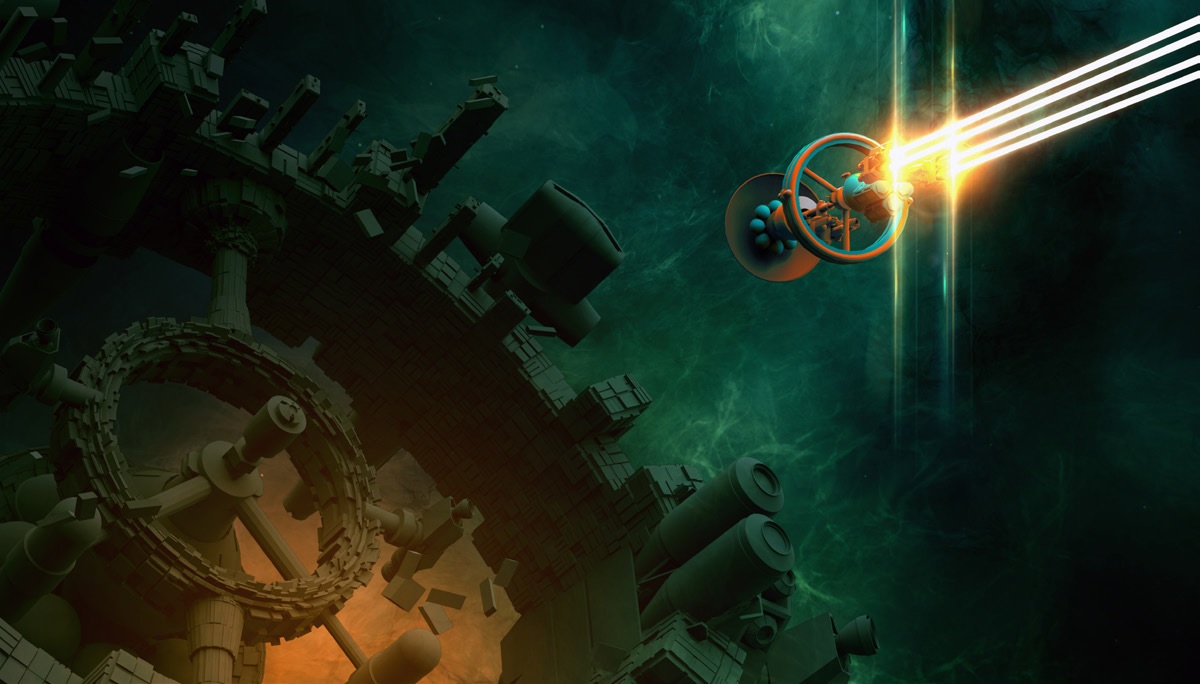
I don’t imagine we can discuss The Long Journey Home without touching on Homer’s Odyssey. Is there interplay between the poem and the game? Can you elaborate on how the poem influences design decisions and themes?
A. S.: The Odyssey is one of our writer’s favorite stories and just about every story of this kind owes a massive debt to it. It’s a poem built on a fascinating contrast – the listener’s drive to see amazing monsters and new adventures, mixed with the hero’s deep longing for home and the familiar. That’s something we want to get across, with our crew’s dialogue and personalities and skills – that sense of homesickness we’ve all felt at some point. This isn’t a story about getting a ship back to Earth. It’s about these four people and getting them Home. Hopefully players will be better at keeping their crew alive than Odysseus was though – he wasn’t a great Captain!
Our take is a little different in that you’re not stopping off at crazy planets for individual adventures, like, say, Star Trek: Voyager, but having organically generated encounters with the various alien races. This galaxy is their territory, their home. Some are happy to help you out, others want you dead, and some . . . let’s just say, they’re happy to have a little fun at the lost humans’ expense. Learning how to deal with them all is a big part of working with them.
What we do take from the Odyssey is the idea of damage. Neither your ship nor crew are prepared for this mission or the strain that it puts them under. Just jumping between systems damages your ship. Technology is always falling apart around you. If your crew dies, they’re not coming back and nobody’s going to replace them. What’s great about Odysseus as a hero was that he wasn’t the strongest of the Greeks, he was the most cunning. He was clever. That’s what got him home. You’ve got a tiny research ship surrounded by pirates and opportunists and natural threats. You’ll have to be clever too, or you won’t last long!
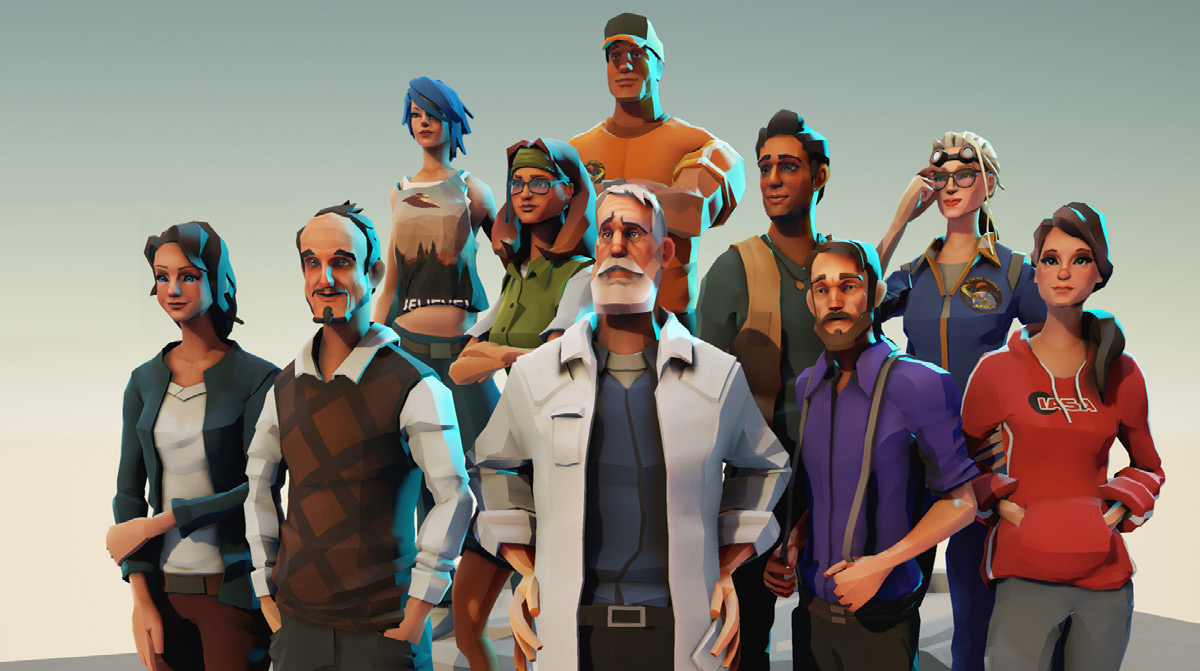
I am intrigued by the idea of a game about coming home. The vast majority of games follow an outward movement, starting at “home” and slowly exploring (and dominating) the surrounding unknown territory. The Long Journey Home is obviously different from this – there is exploration but it is secondary to this idea of returning. Also, being lost in space is a more intrinsically more dangerous place to start from. How do these differences effect your decisions on a design level? On a philosophical level?
A. S.: It’s very different, yes. You’re plunged into the middle of this living alien galaxy with a crew of strangers, a destination and then we leave you to it. You can do quests, you can trade, you can hunt for relics, you can try and make friends – we want to give you as much freedom as possible. For instance, if you agree to give an alien passage to their homeworld, which would normally be a pretty standard quest in an RPG, we’re not going to stop you turning around and selling that alien to a slaver. Or even as meat to another race. There’ll be consequences, of course, but that’s always a decision you can make. You’re in charge. It’s your journey!
We can do this thanks to our quests being very object-orientated, and those objects having multiple uses. A stone tablet in the hands of your archeologist, Siobhan, might point the way to a lost temple. To Miri, the linguist of the group, it might teach an ancient language. Who you have on board, who you meet and what uses you find for things will change every game.

There seem to be a good handful of different styles of game under the hood in The Long Journey Home. Can you run through them and talk about how they interact?
A. S.: We’ve focused on a very clean, easy to approach style, where exploring space is done from a top-down perspective, while planetary exploration is done via a side-on view a little like the old Lunar Lander – though a lot more forgiving! That’s where you spend the bulk of your time, exploring the galaxy, meeting aliens and mining for resources and ancient relics.
When you meet aliens, we cut to the TRANSCOM – your handy translator. You can talk to them about things and races you’ve found, offer and show them your finds to see if they can tell you more or unlock new opportunities, and more. What we’re excited by, though, is that actions speak as loud as words. Some of the aliens will take offence if you raise shields and weapons in their presence. (“How dare you not trust them!?”). Others will take offence if you don’t. (“Do you dare mistake them for weaklings?!”) Learning their quirks is crucial to getting on well with them, and figuring out what makes them tick. There’s lots of secrets to uncover.
We’ve got one race who are . . . visually, think giant grasshoppers. We call them the Wolphax. On their home planet they were weak herbivores who just happened to be smart enough to survive and get into space. Now, they’ve found that nobody cares how physically tough you are when you have spaceships and plasma guns, so they’re making up for lost time by playing Knights. The first time you meet one, they’ll ask you for a friendly fight – just sparring – so they can get the measure of these strange new aliens. Do you risk damaging your ship to make a good first impression, or turn them down? That’s just one of many decisions to make.
Do you have specific inspirations for the game, both in terms of other games as well as other media like books and movies?
A. S.: Oh, so many! Farscape is one of our biggest, especially in terms of making the universe a quirky, interesting place. A lot of science fiction can be very sterile and humorless. We don’t want that. We want you to enjoy meeting our aliens, doing the quests and being part of a living crew that jokes, feuds, panics, reminisces about old quests and generally becomes a close family as a result of both their shared and individual adventures during the Journey. Farscape is the perfect example of a universe that’s fun and funny, but still grounded enough
to feel like a real place that might actually exist somewhere out there. We hope so, because we all love it!
After that . . . where to begin? Our biggest inspiration has to be the PC game Star Control II and its precursor, Starflight. Along with that, too many to list. Everything from Firefly to, heh, maybe a bit more quietly, Lexx, Stargate SG-1, Voyager of course, Red Dwarf . . . most recently, The Martian and The Expanse . . . games like Mass Effect, FTL . . . Douglas Adams, Jack Vance . . . so many European science fiction novels . . . I could go on for hours. Our whole team is full of sci-fi obsessives. If we love it, if it can possibly fit in our universe, we want to play with it. Everything from shows like Star Trek, to cool systems unused since 1985’s Psi-5 Trading Company.

How do you balance a procedurally generated universe against the need for complex moral dilemmas? Those two things seem to be on far ends of a spectrum. What kind of challenges are you facing on this front and how do the two things work together?
A. S.: Our universe is designed to offer a good mix of pure procedurally generated content – the stars, the planets, mining locations, lost relics and so on – with hand-written content like quests and alien interactions. Every galaxy only gives you four out of ten crew members and four alien Empires (plus a few smaller civilizations), and then what you get is a mix of what our quest director generates and the results of your decisions. If you find a priceless relic on a planet for instance, its original owners might come and demand it back. Do you lie to them about finding it? Hand it back? That’s an example of a moral decision coming from the procedural generation side.
Then there are the more specific calls, in the quests and other scripted sections. An alien slaver who demands one member of the crew in exchange for sparing the rest, forcing you to put a shock collar round their neck and send them screaming into subjugation. Working with pirates to trick other vessels into ambushes. Deciding whether to help ships in distress that you come across or try and profit from them.
A more specific example is that one of the crew, former astronaut Kirsten, invited aboard the ship for one last mission, has untreatable cancer. On Earth. The other end of the galaxy has scientists who can treat that kind of thing with ease – but at what cost?
There’s a lot more to our system than that. As said, if you agree to give someone a ride, you can turn around and sell them to slavers for a payout. Or maybe another ship appears and demands you hand them over. Do you keep your promise, or give them up to avoid a fight? Your decisions will have consequences and your crew will have things to say about many of them, but we don’t keep track of morality on a meter or anything like that. We’re looking forward to seeing how players handle their freedom – where they draw the line, where good intentions give way to desperate pragmatism, and what they consider the price of finally getting home.
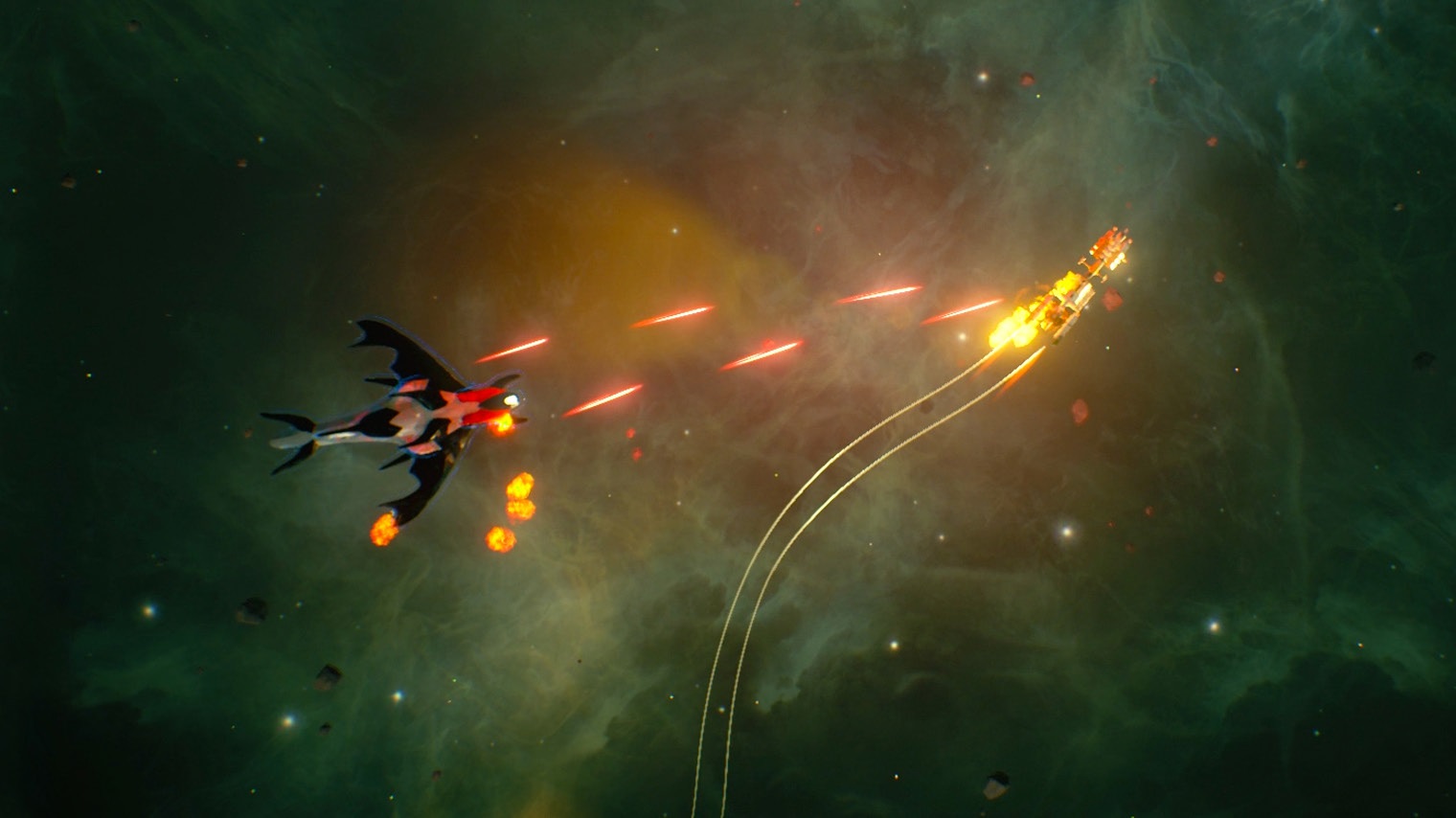
What do you hope to accomplish with The Long Journey Home?
A. S.: At heart, we want to make the game we’ve wanted to play ever since Star Control II came out – only harnessing modern technology and the added tension and replayability of roguelikes to create an experience that stays fresh and full of discovery for game after game after game. We want to not only give the player their own starship, but a universe worth taking the time to explore and master, where the best that the science fiction genre has to offer comes together for the ultimate space adventure.
And of course selling lots of copies would be nice too!
Are there any advantages or disadvantages to using Unreal to develop a game like The Long Journey Home?
A. S.: Inevitably, there’s a bit of both, but overall the advantages easily outweigh the negatives.
We primarily chose Unreal for Epic’s philosophy of openness. We knew going into this project that we wanted to do things that didn’t come out of the box, like planetary gravity in space flight, or procedurally generating galaxies, nebulas, star systems and planets. We briefly considered writing our own engine, but that was a moment of madness. Our programmers have developed engines before, and know all too well what a nightmare it would have been for a team our size. Unreal is built by experienced hands to be a solid foundation, allowing us to focus on the bits that we have to do ourselves . . . some of which push it to its limits! Even then, we get to take advantage of both the community and Epic itself, both of which are very useful.
How did the Unreal Dev Grant come about?
A. S.: Actually, it came as a surprise, shortly after Epic asked us to join
their booth at the Nordic Games Conference in Malmo. My suspicion is that I’ve done a talk at several conferences now about procedural generation and ‘breathing life’ into a galaxy. There was a very nice Unreal Evangelist at one of those. We met after the talk and I think he liked what he saw. Certainly when we applied, the game was in a much earlier stage. I think it also helps that we got some positive press coverage from both GDC and PAX East.
How has the Unreal Dev Grant affected your work? Did the grant allow you to do things with TLJH that you wouldn’t otherwise have been able to?
A. S.: Oh yes. For a small team, it has an impact. We were able to hire an additional person because of it, mostly to help us with testing. Our game is procedurally generated with lots of random elements – that means a lot of testing. A lot. Happily, we were able to find someone who could not only take that on, but help with internal communication, project management and improving the build pipeline. That means so much less pressure – and at least a little more time to sleep at night – for the rest of us, we focus on finishing and polishing the game. We’re thrilled that Epic likes what we’ve been doing, and can’t thank them enough for their support!
You’ve been reading an excerpt from Unwinnable Monthly Issue .
To read the article in its entirety, please purchase the issue from the shop or sign up for a subscription to Unwinnable Monthly!

